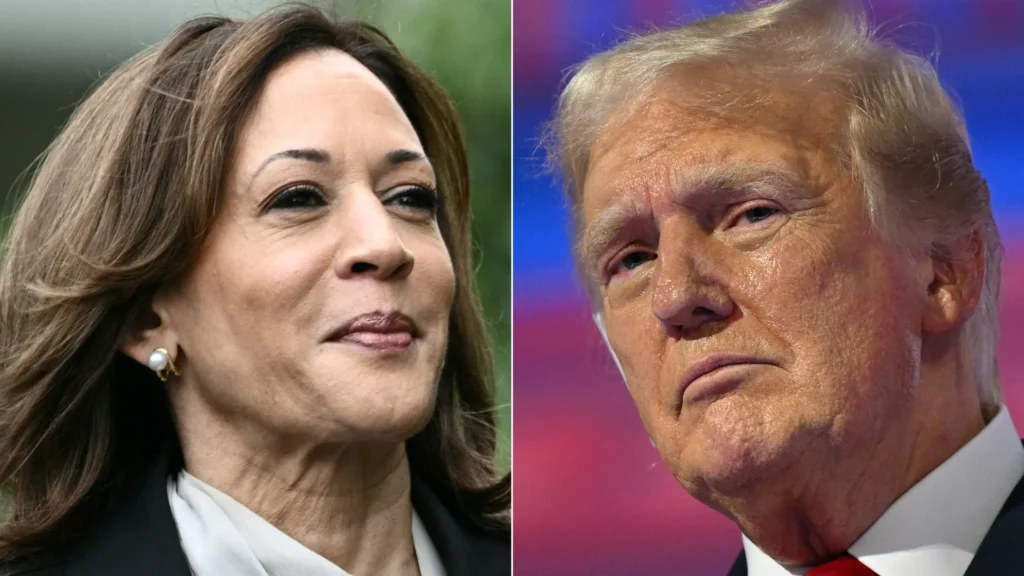Democratic Vice President Kamala Harris is maintaining a narrow lead over former President Donald Trump in the race for the upcoming U.S. presidential election on November 5, according to a recent Reuters/Ipsos poll. The survey indicates that Harris commands 47% of the support among registered voters, while Trump trails with 40%. This marks a slight improvement for Harris, whose lead has increased from five percentage points in a previous poll conducted earlier this month. The latest poll, which closed on Monday and has a margin of error of approximately four percentage points, shows Harris garnering support from 46.61% of respondents, compared to Trump’s 40.48%.
While national polls such as the one conducted by Reuters/Ipsos provide insight into voter sentiment, the ultimate decision will be determined by state-by-state results in the Electoral College. The race remains competitive in key battleground states, where both candidates are neck-and-neck, often falling within the polls’ margins of error. Notably, a recent New York Times/Siena College poll highlighted that Trump holds marginal leads in critical states such as Arizona, Georgia, and North Carolina.
Despite Harris’s lead in the national poll, voters expressed a mixed sentiment regarding economic issues, which are crucial to the election. When asked who has the better approach on the economy, unemployment, and jobs, 43% of respondents favored Trump, while 41% chose Harris. This two-point advantage for Trump on economic matters shows a decline from his previous three-point lead in an August poll and an eleven-point lead shortly after Harris announced her candidacy.
Harris entered the presidential race following President Joe Biden’s withdrawal after a lackluster debate performance against Trump in June. During that period, Trump was widely regarded as the frontrunner due to his perceived strength on economic issues, especially in light of the high inflation rates that characterized the Biden administration. Historical polling from April to June revealed that voters consistently favored Trump over Biden regarding economic concerns, often by margins of five to eight points.
In terms of confidence in economic stewardship, Trump continues to exhibit advantages in specific areas. An August Reuters/Ipsos poll asked voters which candidate had a better approach to the U.S. economy, without reference to jobs or unemployment, and revealed that Trump led Harris by eleven points, capturing 45% to her 36%. Both candidates are focusing their campaigns on economic pledges, which, according to the latest poll, remains the foremost issue for voters.
In his latest campaign trail statements, Trump proposed creating special manufacturing zones on federal lands and raising tariffs on imported goods to bolster American manufacturing. Conversely, Harris is advocating for tax breaks for families with children and higher taxes for corporations, aiming to align her policies with the needs of working-class Americans. She is expected to unveil new economic proposals in the coming days, although some advisers have acknowledged that time is limited to sway voters with policy pitches.
According to the polling averages maintained by FiveThirtyEight.com, the race remains exceptionally close at the national level, with Harris leading Trump by a slim margin of 48.3% to 45.8%. The latest Reuters/Ipsos poll surveyed a total of 1,029 U.S. adults online nationwide, including 871 registered voters. Among the most likely voters, Harris’s lead widens to 50% against Trump’s 44%, underscoring the competitive nature of this election cycle.
As both candidates ramp up their campaign efforts in the lead-up to the election, the race between Harris and Trump promises to be closely watched, particularly as voter sentiment around economic issues continues to shift. The upcoming months will be pivotal as each candidate seeks to solidify their support and convey their vision for America’s future.



